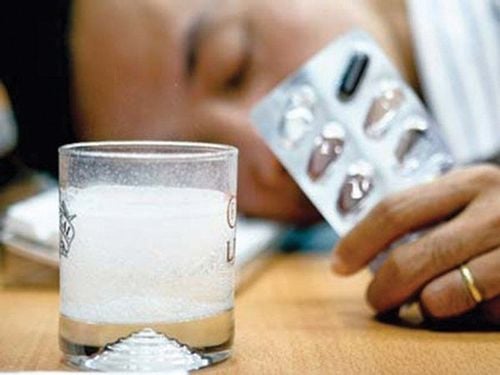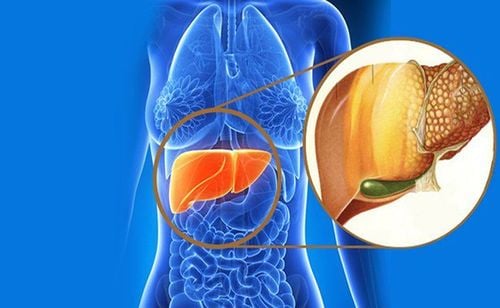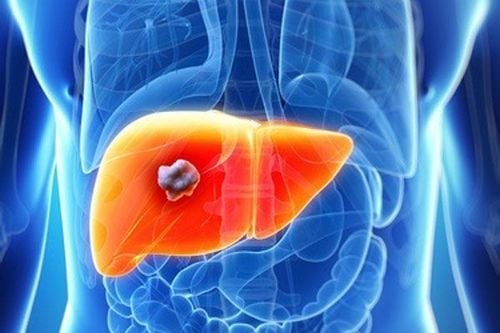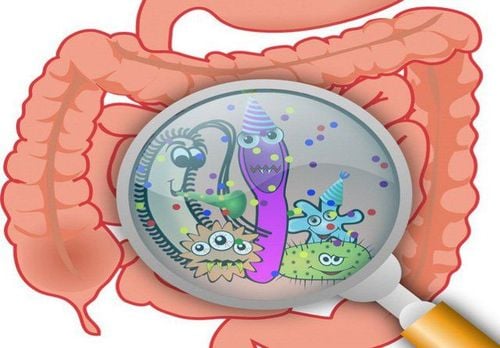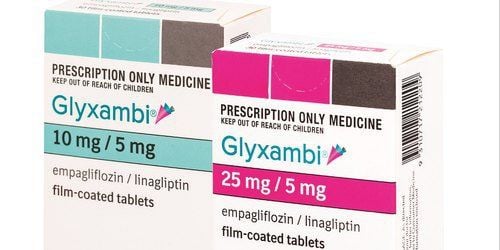This is an automatically translated article.
Drinking too much alcohol will cause liver related diseases, mental and behavioral disorders, nervous system degeneration, intoxication, stomach disease and heart disease. These are diseases with a high mortality rate. The harmful effects of alcohol are not only in terms of health but also affect family happiness.The harmful effects of alcohol
According to many studies, when alcohol enters the body, if it exceeds the permissible level, even a little will cause many harms to physical and mental health. First, it has a direct psychological effect: it dilates blood vessels, especially the outer ones. That explains why after drinking alcoholic beverages we feel warm. After drinking alcohol, the body's natural temperature regulation is no longer effective, because alcohol also has an anesthetic effect, so the cold feeling is no longer felt. Therefore drinking in winter can lead to freezing and death.
Chất cồn khi vào cơ thể, nếu vượt quá mức cho phép dù chỉ rất ít cũng sẽ gây ra nhiều tác hại cho sức khoẻ thể chất và tâm thần
Alcoholism causes many dangerous diseases
Alcohol has a huge impact on the brain. Alcohol also affects sex drive and fertility. Alcohol reduces self-control and thus increases sexual arousal. Alcohol belongs to substances that have a toxic effect on the testicles and sperm. Men who drink alcohol before having sex not only increase the risk of miscarriage but can also affect the development of the baby born. Mothers who drink alcohol during pregnancy are more likely to give birth to children with intellectual disabilities.Disease caused by alcoholism
Hepatitis
Alcoholic hepatitis is inflammation and necrosis of liver cells that lasts 1 to 2 weeks. Symptoms include: loss of appetite, nausea, vomiting, abdominal pain, fever, jaundice, sometimes mental confusion. The disease can progress to alcoholic cirrhosis over many years. Cirrhosis is caused by frequent damage to liver cells. Fatty liver is an early stage of alcoholic liver disease, if the patient stops drinking at this stage, the disease can go away on its own. Alcohol can cause liver damage, even in small amounts, if taken with medications that contain acetaminophen. Alcoholic hepatitis commonly occurs in alcoholics, but it also occurs in occasional drinkers. Alcoholic hepatitis can be fatal, especially if the patient has previous liver damage.Trembling
Delirium occurs only in alcoholics. This is the most serious and common complication in alcoholics. This disease is also called "alcohol withdrawal syndrome". The causes of delirium are nervous system toxicity and alcohol-induced metabolic disorders. The disease appears after stopping drinking alcohol from about 12 - 48 hours with 2 groups of prominent symptoms. One is a delirium-type disorder of consciousness: loss of spatial and temporal orientation, poor identification of loved ones, complete insomnia or restless sleep struggling with many nightmares; always in a state of anxiety, fear, tension, looking but not seeing; there are hallucinations, hallucinations... so there are often dangerous defensive reactions for people around. The second is neurological disorders: whole body shivers, stutters, staggers, so it is easy to stumble and cause traumatic brain injury, bone fracture, organ rupture... Worse, some patients still even convulsions such as epilepsy. Consciousness disturbances usually increase in the evening.In addition, people with delirium also have serious autonomic disorders such as profuse sweating such as bathing even at rest, thirst, pale skin, less elastic, less urine, nausea, vomiting , abdominal pain, loose stools, fever, heart palpitations, unstable blood pressure... A very few cases of delirium and tremor subsided on their own after a few days. Most of the cases, if left untreated, will get worse; The disorders become more and more serious, putting the patient at risk of death.
Gout
Excessive alcohol intake is one of the causes of gout. Initially, the excess alcohol, which accumulates after many times of drinking, will cause problems with metabolism and energy metabolism. The accumulation of this substance in the joints will lead to gout, also known as gout, chronic destruction of joints, causing acute gouty arthritis with red, swollen and painful manifestations. Continuous drinking of strong alcohol will increase the amount of uric acid in the blood. Gout if complications occur, it is difficult for the patient to avoid kidney damage, which can cause kidney stones.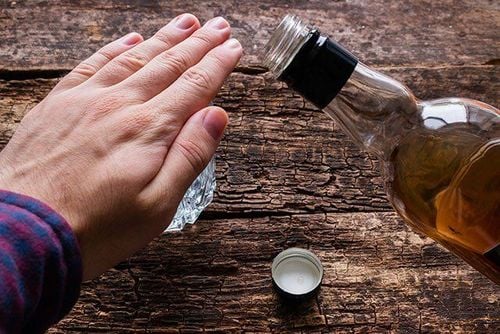
Lượng cồn nhiều là một trong những nguyên nhân dẫn đến bệnh gút
Heart-related diseaes
The heart is also a type of muscle, and drinks with high alcohol content weaken the muscles, so of course, the heart will be weakened. The heart will not be able to pump blood as efficiently as it should. The higher the concentration of alcohol, the greater the impact on the heart, they narrow the blood vessels and increase the pressure in the blood, forcing the heart to work harder. They also cause cardiac arrhythmias.Disease peptic ulcer
Once introduced into the body, the stomach is the first stop for alcohol. Within 5 minutes, 20% of the population will immediately enter the bloodstream by sliding between the mucus-producing epithelial cells. Here, alcohol will weaken the protective epithelium of the stomach, thereby increasing the risk of inflammatory diseases, heartburn, ulcers and bleeding.The harmful effects of alcohol also affect the whole family. The use of force against a partner or children can be a huge strain on family life. Often leads to divorce. Children of later alcoholics are more likely to develop certain patterns and behaviors, and are especially at risk of becoming addicted or becoming attached to an alcoholic.
Please dial HOTLINE for more information or register for an appointment HERE. Download MyVinmec app to make appointments faster and to manage your bookings easily.





